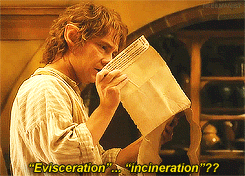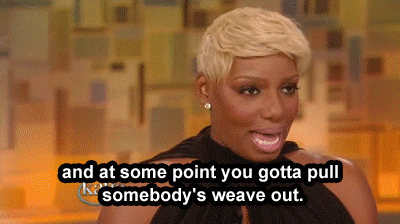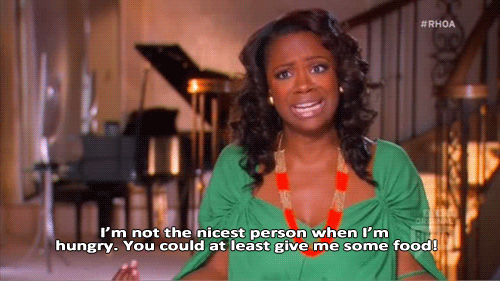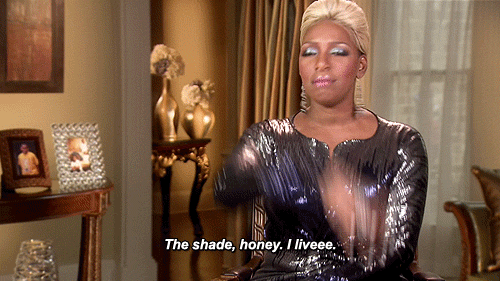Art in the Professions Week
Preface
I'm not a lawyer. This isn't legal advice. My professional insurance does not cover this article. Also:
"The article does not constitute an attorney-client relationship, attorney-client privilege, or legal or practical advice of any sort. [Dongs.]" - haldron
If you're looking at a contract that's terrifying you or involves a ludicrous amount of money or whatever, please consult a local lawyer in your jurisdiction who can help you more directly. This is an article intended to gloss over standard creative contracts from the perspective of a contractor/employee and an employer, and to try and make you realize why you should probably use one - plus a few tips I've learned over the years on both sides of these contracts. Now buckle up and enjoy the read.

Introduction
Contracts. Some people love them (and rightfully so); some people fear them; some people genuinely don't know what they are, let alone what they should include - and what they actually mean for the parties entering them. So we're going to start this article with a brief definition of what a contract is:
contract
1) n. an agreement with specific terms between two or more persons or entities in which there is a promise to do something in return for a valuable benefit known as consideration... The existence of a contract requires finding the following factual elements: a) an offer; b) an acceptance of that offer which results in a meeting of the minds; c) a promise to perform; d) a valuable consideration (which can be a promise or payment in some form); e) a time or event when performance must be made (meet commitments); f) terms and conditions for performance, including fulfilling promises; g) performance.

Sorry for the dry text from a legal dictionary.
So - to put that in simpler terms: It's an enforceable legal agreement, not necessarily in writing, between two or more parties involving a mutual exchange of "consideration" - which could be anything from cash money to property or equity to a promise to do or not do something.

The above is not a contract, since Nene Leakes's friend has not encouraged her to pee in her drink. If Nene Leakes's friend does encourage her, or even bluntly ask her, it is still probably not a contract, but rather an illusory or "nude" promise - since the friend isn't giving her consideration the offer is not enforceable. If Nene Leakes's friend offers her $10 to pee in her drink, then it's a contract, but other doctrines to the effect of "who the hell would even want that for $10" may apply. If she offers to pay Nene $10 to not pee in her drink, that might be a contract too, but probably voidable because of duress.
When it comes to creative contracts, what this usually translates to is fairly simple: You're offering rights to a work you created or the license to use that work, generally in exchange for either money or the notoriety of having your work seen and attributed to you. Courts don't generally decide on what is fair consideration - caveat emptor and all - and the definition at law is pretty broad as long as whatever you're trading is legal to trade.

"Most creative contracts have consideration, as artwork is generally bartered for money or sexual favors. However, the latter may not be enforceable due to anti-prostitution statutes." - haldron

By making the agreement explicit, you and the other party can both file lawsuits to seek remedies for non-performance, like refunds or injunctions, if the contract isn't followed properly. A well-written contract allows the artist to collect payment if the other party is being difficult, and allows the other party to make you turn over the work if you're being difficult. Plus lots of other protections on both sides, depending on the specific terms you agree on. It also outlines the exact rights the artist is assigning or waiving, including things like whether they want to have the work attributed to them, whether to let the other party use it in derivative works (like using a logo in a business card), or whether the other party has a one-time right to use the work or an unlimited right to use it. Now we're going to go into some specifics topics, about things like rights and money. Woo!
BUT FIRST:
Here's some actual advice though: Don't sign anything without reading it. Don't sign anything you don't understand. Don't sign anything you don't agree with. Don't sign anything that has errors in it. Don't sign anything unless you're sure about it, basically. You can always consult a lawyer if you don't understand your contract or have concerns about it.

Next order of business:
Intellectual Property Rights
Okay, so let's say you just made a bad-ass logo for Company X. You're going to give it to them and they want to buy it from you, and you've not done a contract yet. Do you want to just outright give it to them - so they can use it however they want and do to it whatever they want, for a one-time fee? Or do you want to license it to them to use specifically on their website and business cards, but most certainly never on an envelope? And do you want to be given credit for it, or do you want to use it in your portfolio to sell your own skills to future customers? These are the questions you've got to figure out in your contract - because at law, you might have an unfair advantage or a total disadvantage over the company if there's nothing written.
Nene Leakes has a mantra for situations like this.
If you work for the company as an employee (or if, as a freelancer, you elect to treat a job as work-for-hire) the default is that you have no rights, period, to the work.
"People often throw around the work-for-hire doctrine. If you're taking commissions on the internet, that doesn't fucking cut it." - haldron
Your employer is the legal creator and has the copyright. But some employment contracts will specify otherwise - allowing you to retain some rights, like attribution for blog posts or the permission to use work from that company in your portfolio. This might be a concern if you're on staff for a corporate blog that gets a book deal, or design a million ad campaigns in-house for an agency and later go freelance. The good thing, though? Other people at the company probably have had the same experience, so the contract of employment's probably already got those bases covered in your favour. Read it. Ask your lawyer if it confuses you. You can always turn down a job offer if the contract's not agreeable. There are some specific terms to determine if a position is work-for-hire that have to do with relationships of agency:
But short of being a lawyer, accountant or HR consultant you'd probably be a bit confused by that so let's sum it up with this gif:
- Control by the employer over the work (e.g., the employer may determine how the work is done, has the work done at the employer's location, and provides equipment or other means to create work)
- Control by employer over the employee (e.g., the employer controls the employee's schedule in creating work, has the right to have the employee perform other assignments, determines the method of payment, and/or has the right to hire the employee's assistants)
- Status and conduct of employer (e.g., the employer is in business to produce such works, provides the employee with benefits, and/or withholds tax from the employee’s payment)

MAKE IT RAIN.
So you're probably thinking, "Hey I guess I'll just freelance forever then and keep all the rights woo", right? No. No, because you're being a dick if you retain too many rights.
"Don't be a dick." - haldron
See, think of it this way: If you are a freelancer who's made a jingle for a commercial or a stock photo or something else you could reasonably get rich off rehashing later, it might be useful for you to keep the rights. That's fairly okay - but you're still going to want to give the company pretty broad rights, so they're not too limited in how they can use it. But if you're making a logo, I want you right now to look at it and ask yourself, "Self, what in the actual hell is the use of the copyright to this logo to me?"

Fact is? There's no use. You've made the piece for them. Give it to them. Sell them the copyright (which you can charge more for than a license!), and either assign or waive the moral rights if they exist and can be assigned/waived in your jurisdiction. That way they can do with it what they will. Adding a clause about how they can't edit it to make it terrible is a-okay, but asking for attribution every time they use it or having a license on a logo that's one-time use and non-assignable? The company's going to take one look and go "... We can't use this logo with these terms, at least not in day-to-day business." And then you're going to lose the sale, versus making cash money on the sale if you'd just sell the damn copyright in the first place.

Nene Leakes ain't got time for buying licenses.
All that said? If it's fine art for a private sale, discuss with the person commissioning you if they're okay with you retaining rights for online display, prints, reproduction, all that sort of things. They probably will be. You're also going to want to figure out what they want to do with the work - whether it's private physical display, online use, or commercial use. Price accordingly.

And if it's for literature in publication, even online? Pretty much demand reprint rights, retain moral rights including attribution rights, and sell a one-time license only - with the option to renegotiate in the future - unless you're selling it to Knopf or something. Also, remember:

And if it's for literature in publication, even online? Pretty much demand reprint rights, retain moral rights including attribution rights, and sell a one-time license only - with the option to renegotiate in the future - unless you're selling it to Knopf or something. Also, remember:
"Moral rights are practically nonexistent in the US because money." - haldronOne last note? Don't sell licenses that you can't sell. This is a pretty limited case, but for example - if you're using a work that's licensed Creative Commons ShareAlike to make a derivative piece, you can't sell true copyright of the derivative piece because the original creator of the piece you used in your work states that derivative works also need to be under the same license (Creative Commons isn't a "type of copyright", it's a blanket license) that allows others to make derivative works from it. If you don't disclose these things to the party commissioning the work, everyone can sue you for all the things, basically - plus your contract's probably going to specify "no using source material offered under sharealike licenses" unless it was written before the internet existed. Again, read your contract and make sure you're following it at all times.
Other Clauses
The other clauses in a standard creative contract are really pretty common-sense. They can outline things like the duration of the contract and how long you have to finish the work, whether you're allowing for revisions if it's a contract for a single piece that you're making on commission, the exact scope of the project - what it entails (which you should state fairly narrowly so make sure it's not so broad that they can get out of paying you), which jurisdiction's law you're applying to the contract (and where you can file lawsuits about the contract), and how, when and what you get paid.

I'm not sure who this is, but when I google searched Nene Leakes gifs she showed up and fit.
Basically, this is where if you don't agree with a clause, ask for them to change it - and don't sign it. Easy concept. And make sure everything you discuss and agree on is written into the contract, because the general rule of law is that a written contract supersedes any verbal agreements. Most contracts have an integration clause stating this anyway, to the effect of:

This Agreement is the final, complete and exclusive agreement of the parties with respect to the subject matter hereof and supersedes and merges all prior communications between us with respect to such matters. No modification of or amendment to this Agreement, or any waiver of any rights under this Agreement, will be effective unless in writing and signed by me and the CEO of Company.So, yes, don't sign anything you don't agree with or don't understand, demand changes as you see fit, and if the person who's hiring you does this when you ask for clarification--

-- run away fast. And if they have questions for you before entering the contract, answer them truthfully, because fraud and whatnot.
A last note: be sure to use your legal or assumed personal name or any other name you're licensed to transact business under - the contract will be binding either way, but there could be legal implications unrelated to the contract's enforceability if you use a false name or a business's name that you haven't registered. In Ontario, if you use a false name but the other party doesn't the contract is explicitly still valid according to the law but only the other party can bring a suit before the court relating to the contract - unless you can jump through enough hoops to prove it was an oversight on your part or done in good faith. You can also get hit with a $2000 fine for using an unregistered name if you do it "without reasonable cause", which is going to be pretty hard to argue. Laws in most common-law jurisdictions are fairly similar, but again, consult with a local lawyer (or just play it safe). The last thing you want is to use a really cool fake or unregistered business name, then have this reaction later in court:

Frank does look suspicious. So will you, if your name is John Doe but you signed a contract as Princess Amelia Z'norf.
In court, you want to look more like this:

Nene knows her contract's going to protect her and the other party to the lawsuit's being litigious for no reason.
See? Contracts are important, so you should have one. It ensures you get paid and that your work only gets used how you want it to be used. You want to get paid, right?

Nene really wants to get paid.
A last note: be sure to use your legal or assumed personal name or any other name you're licensed to transact business under - the contract will be binding either way, but there could be legal implications unrelated to the contract's enforceability if you use a false name or a business's name that you haven't registered. In Ontario, if you use a false name but the other party doesn't the contract is explicitly still valid according to the law but only the other party can bring a suit before the court relating to the contract - unless you can jump through enough hoops to prove it was an oversight on your part or done in good faith. You can also get hit with a $2000 fine for using an unregistered name if you do it "without reasonable cause", which is going to be pretty hard to argue. Laws in most common-law jurisdictions are fairly similar, but again, consult with a local lawyer (or just play it safe). The last thing you want is to use a really cool fake or unregistered business name, then have this reaction later in court:

Frank does look suspicious. So will you, if your name is John Doe but you signed a contract as Princess Amelia Z'norf.
In court, you want to look more like this:

Nene knows her contract's going to protect her and the other party to the lawsuit's being litigious for no reason.
Conclusion
See? Contracts are important, so you should have one. It ensures you get paid and that your work only gets used how you want it to be used. You want to get paid, right?

Nene really wants to get paid.
And it also ensures everyone has all the relevant info about the work being done and its implications and payment.

Nene's knife habits are a real-life metaphor of why contracts are good. At least you see her coming.

Nene's knife habits are a real-life metaphor of why contracts are good. At least you see her coming.
So, get a contract. Or a good lawyer who can advise you on your local laws and make you a contract. And then bathe in your earnings as a way-more-professional-looking artist.

Mother Nene, pray for us.

Mother Nene, pray for us.
Discussion
- Do you use contracts? If so, any other pointers for things new artists should watch out for in theirs?
- If you don't use formal contracts for your commissions - why not?
- Do you even know who Nene Leakes is?